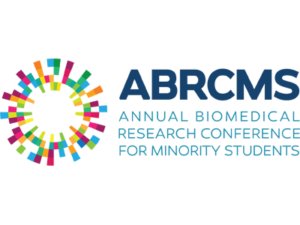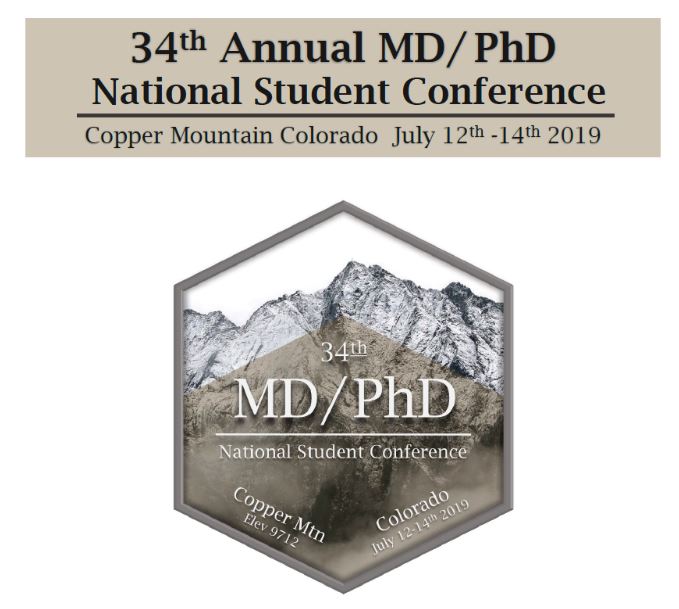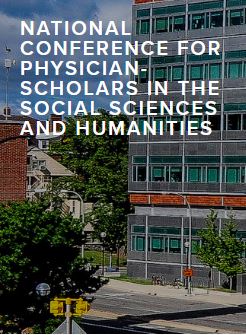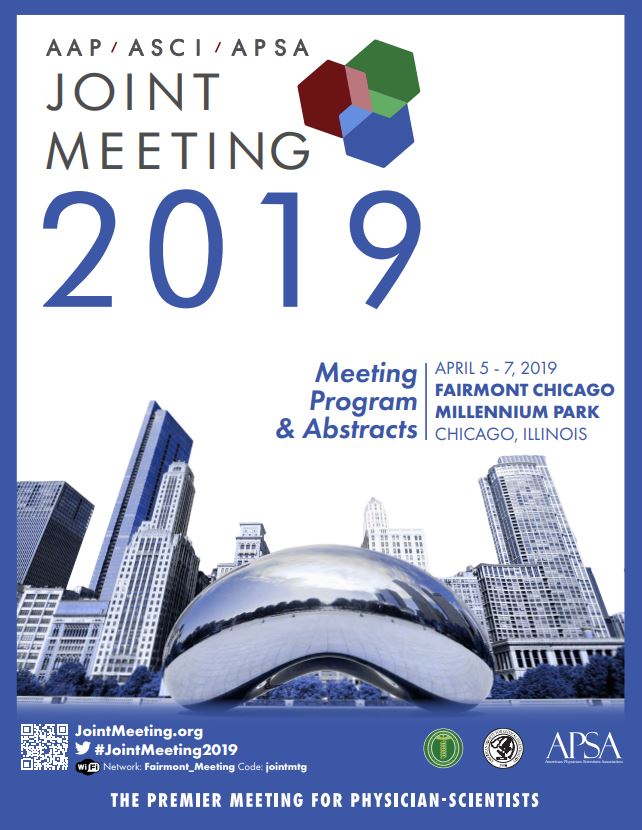Conferences and National Meetings
ABRCMS

Our Program Directors and one current student attend this event annually to mentor students and learn how to facilitate student success. During the four day conference, students present their research, enhance professional development skills, explore graduate schools, and network.
MD/PhD National Student Conference

Each year, we send a few students to the Annual National MD/PhD Student Conference.This unique assembly unites MD/PhD students, alumni, and faculty from across the country to explore the intersections of research and medicine, focusing on career opportunities, healthcare policy, and scientific breakthroughs.
The AAP/ASCI/APSA Joint Meeting
Michael Clark, Robert Corty, and Brooke Matson attended the 2019 joint meeting between the APSA, ASCI, and AAP. They enjoyed inspiring keynote presentations on the national kidney transplant program, CAAR-T cell therapy for pemphigus vulgaris, and applications of “big data” methods for health systems analysis as well as a panel discussion on sexual harassment and gender diversification. They participated in the PTSP information session to learn more about opportunities for research in residency and networked with PTSP directors.
The National Conference for Physician Scientists in the Social Sciences and Humanities

In April 2019, Izzy Brassfield, Evans Lodge, and Camille Morgan attended the National Conference for Physician Scientists in the Social Sciences and Humanities held at the University of Michigan. This biannual conference brings together MD/PhD students, residents, fellows, faculty, and others interested in how anthropology, sociology, history, public health, economics, and philosophy. The 2-day meeting included networking sessions, poster and oral presentations, and shared meals in the Biomedical Science Research Building at the University of Michigan. The keynote speakers including Lisa Harris, Jacalyn Duffin, and Scott Stonington. Dr. Harris, a practicing OB/Gyn with a PhD in American Culture, used her experience as an abortion care provider to discuss how recognizing truth in opposing viewpoints can lead to more successful debates across ideologies. Dr. Duffin, a hematologist with a PhD in History, recounted a 20th century medical voyage to Easter Island and modern implications of the discovery of Rapamycin there. Finally, Dr. Stonington, an Internist with a PhD in Medical Anthropology, detailed how a Western clinical ethics framework breaks down when trying to understand individual, familial, and societal dynamics of end-of-life care in rural Thailand. The conference had a remarkably supportive atmosphere for MD/PhD trainees in the social sciences and humanities, while still offering space for academic critique and improvement.
